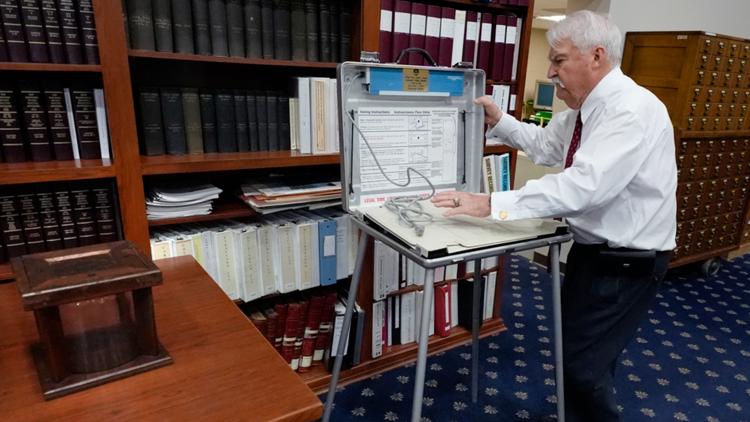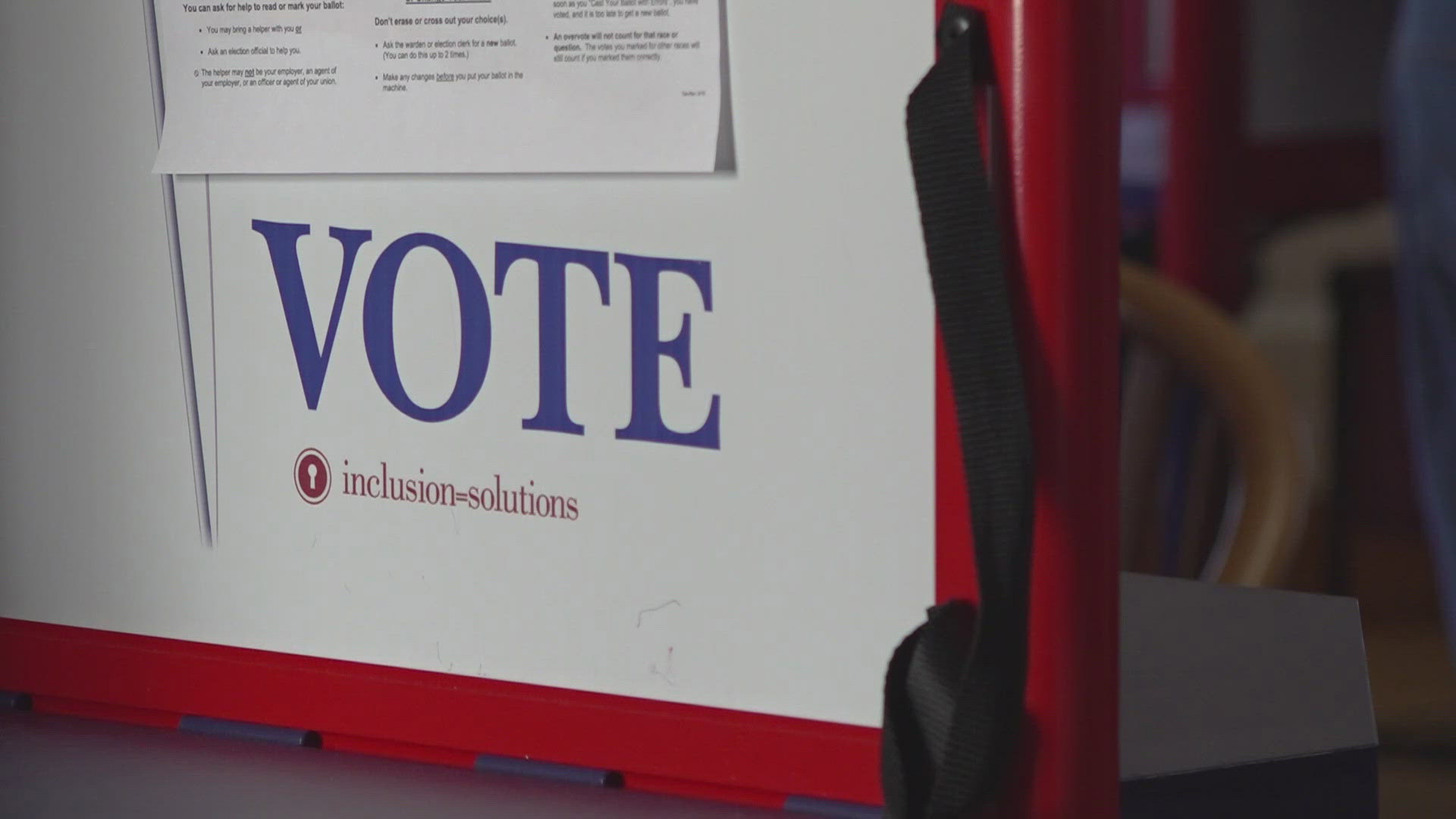CONCORD, N.H. — As New Hampshire voters look ahead to the election, a panel of experts looked back Thursday at how the state has safeguarded the process of both casting and counting ballots.
Surrounded by antique voting equipment, ballots and other memorabilia at the state archives, Secretary of State David Scanlan was joined by his predecessor, Bill Gardner, and others who have been involved in scrutinizing and sometimes rejecting new voting technology.
Kurt Hyde, a former computer science professor at Rivier University, described how he and his students exposed problems with ballot counting machines in the 1980s. He went on to organize the first national symposium on computers in elections in 1986 and worked with Gardner and lawmakers to pass legislation in 1994 requiring the use of paper ballots.
“It says no voting machine or device shall be used in any election in this state unless it reads the voter’s choice on a paper ballot and is of a type so approved by the ballot law commission,” he said. “That was the nation’s very first ever paper trail law.”
While former President Donald Trump and other Republicans have called for the use of paper ballots in this year’s election, paper ballots or paper records of every vote already are produced in nearly every state. The Brennan Center at New York University estimates that 98% of all votes nationwide will be cast on paper in this year’s presidential election.
New Hampshire’s 1994 law was in keeping with earlier efforts to protect the privacy of voting and the accuracy of the results, Hyde and other panelists said. The state adopted the use of secret ballots in 1891 – three years after they made their U.S. debut in Louisville, Kentucky. And in the 1980s, New Hampshire outlawed punch card voting machines, well before they achieved notoriety in the 2000 presidential election in Florida.
“We had six communities in the state with the punch cards,” said Gardner. “Every election cycle, we had more problems in those towns than the whole state combined.”
In the 1980 presidential primary, about 300 punch cards got mixed up between the Democratic and Republican primaries in Concord, so people who thought they were voting for Jimmy Carter were voting for Ronald Reagan, he said. In another race, a recount ended up leaving both candidates disgusted with the process of analyzing each card — were two corners of a chad punched or just one?
“This is terrible to decide an election like this,” Gardner said one of them told him. “That was the last recount that I did with those machines.”
While all New Hampshire voters mark their ballots by hand, how the votes are counted depends on the city or town. Just under half opt to hand count and have done so for years. But those communities are among the least populated in the state. The most populous towns and cities use machine tabulators, so most ballots cast in the state are counted electronically using aging AccuVote scanners. The ballot law commission has approved two models to replace them.



